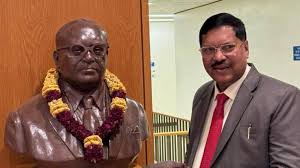
Delhi High Court Mandates Accessibility Guidelines for Cinema to Benefit Visually and Hearing Impaired Individuals
Last Updated on March 31, 2024 by News Desk
Introduction:
In a significant move aimed at enhancing accessibility for visually and hearing impaired individuals, the Delhi High Court has directed the Union Ministry of Information and Broadcasting (MIB) to establish comprehensive guidelines for making cinema more inclusive. Justice Prathiba M Singh emphasized the necessity of accessibility features in feature films and urged the Ministry to ensure compliance by all stakeholders within a reasonable timeframe. The court’s directive follows a plea filed by various Persons with Disabilities (PwDs), advocating for the enforcement of rights and accessibility standards as outlined in the Rights of Persons with Disabilities Act, 2016.
Issue:
The primary concern addressed by the Delhi High Court pertains to the lack of provisions for visually and hearing impaired individuals in feature films released in India. Despite the legal recognition of rights for persons with disabilities, there exists a significant gap in catering to their needs within the film industry.
Rule:
The court emphasizes that accessibility is a legal right and imposes an obligation on both public and private entities to ensure reasonable accommodation measures. It underscores the importance of making cinema enjoyable and accessible for all, emphasizing the positive obligation of the State to facilitate such measures as outlined in the Rights of Persons with Disabilities Act, 2016.
Analysis:
The directive mandates the MIB to finalize guidelines titled “Draft Guidelines of Accessibility Standards in the Public Exhibition of Feature Films in Cinema Theatres for Persons with Hearing and Visual Impairment.” These guidelines are intended to make accessibility features mandatory in feature films and apply to public exhibition in cinema halls or movie theatres for commercial purposes. Additionally, the court has instructed the Ministry to designate an officer to handle representations for the inclusion of accessibility features in films until the guidelines are officially notified.
Conclusion:
The Delhi High Court’s directive underscores the imperative of inclusivity in the film industry and reinforces the legal obligation to accommodate the needs of visually and hearing impaired individuals. By establishing comprehensive guidelines, the court aims to bridge the existing gap and ensure that cinema becomes accessible to all, aligning with the principles of equality and non-discrimination.
Written by — Athi Venkatesh AVD




